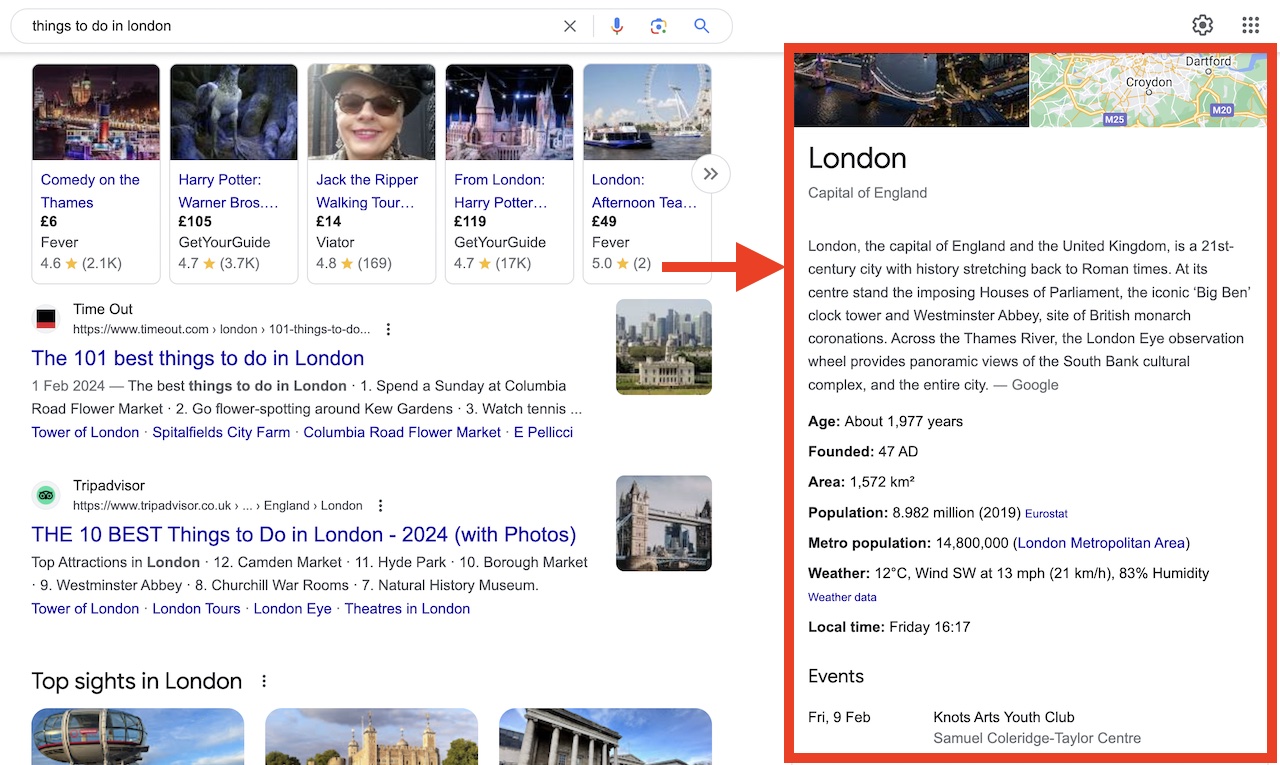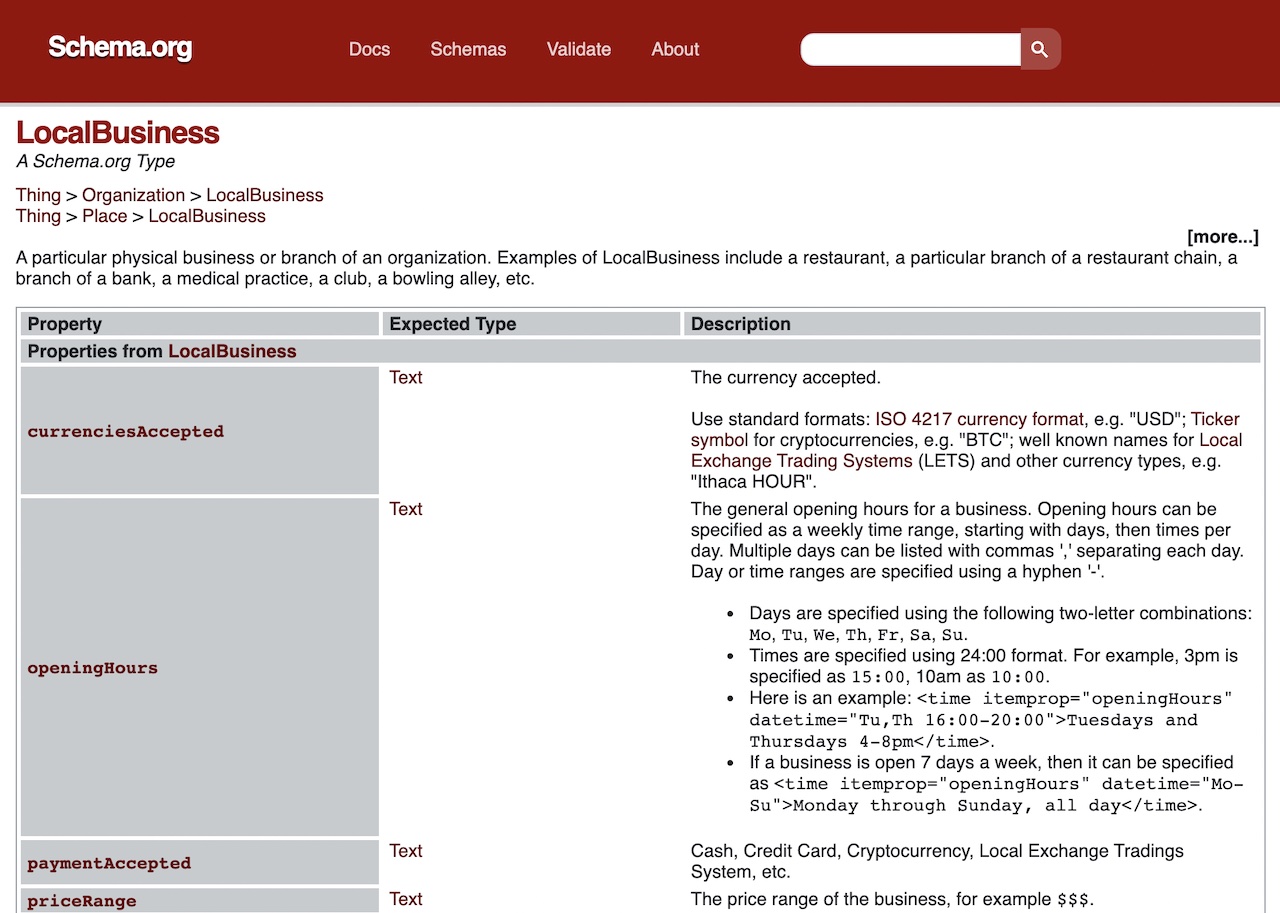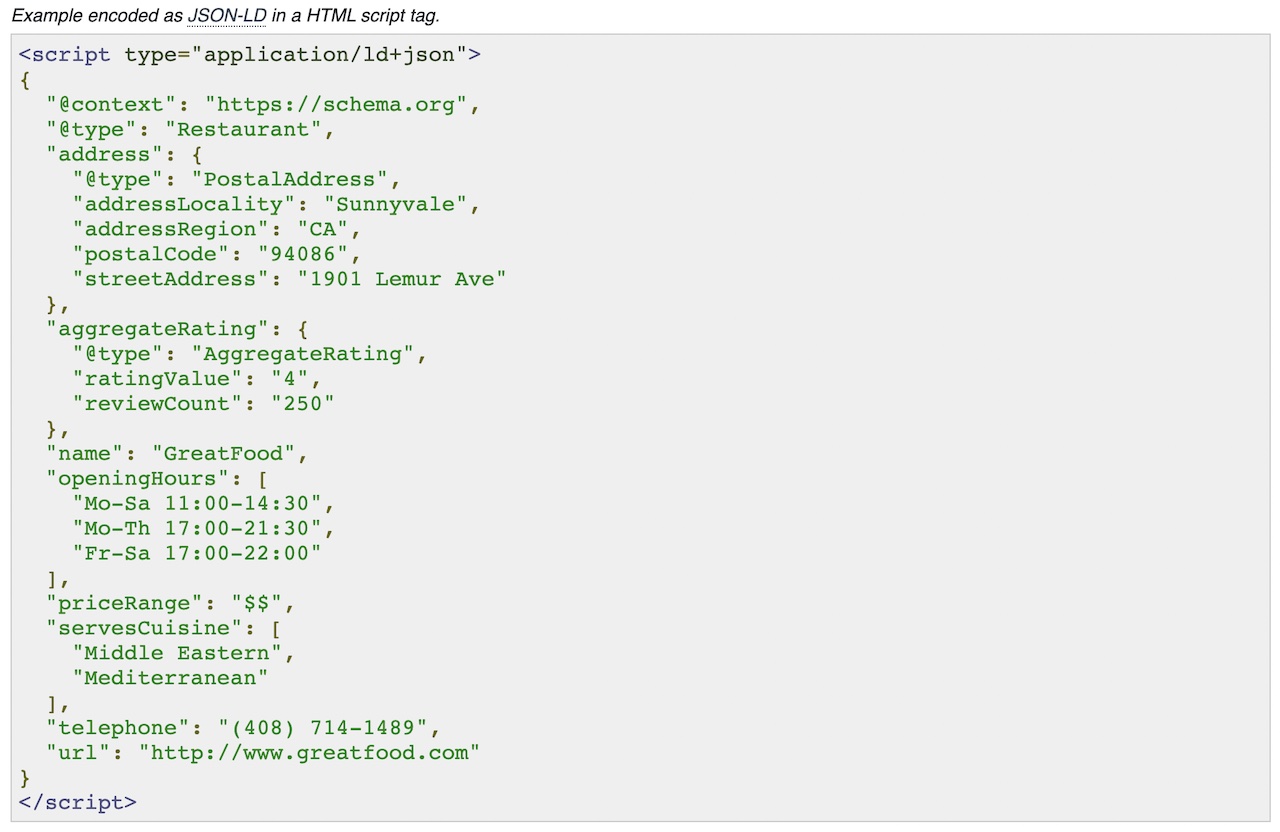Mastering Structured Data in SEO: A Beginner's Guide
If you want to boost your website's visibility and rankings, incorporating structured data into your SEO strategy is crucial. By providing search engines like Google with clear information about your content, products, and services through structured data markup, you can enhance the chances of appearing in rich snippets and featured snippets. This not only improves your click-through rates but also establishes credibility and trust with users searching for relevant information online.
So, are you ready to take your SEO game to the next level by harnessing the power of structured data? Keep reading as we delve deeper into how implementing structured data can significantly impact your search engine optimization efforts.
For example, when searching for recipes, structured data is pulled into the SERPs as images and "Recipe" items:

Basics of Structured Data
What is Structured Data?
Structured data in SEO refers to organizing website content using a specific format. Search engines use this structured data to understand the information better and display it clearly in search results. By adding structured data, you provide search engines with detailed information about your content.
Structured data helps search engines comprehend your content's context, leading to rich results like featured snippets, knowledge graphs, and more. This can enhance your visibility on search engine result pages (SERPs) and increase click-through rates.
Below is an example how Google displays its knowledge graph information in the SERPs. In this case, the query is "Things to do in London":

Why is Structured Data Important for SEO?
Implementing structured data in SEO can significantly boost your website's visibility and click-through rates. It helps search engines understand the relevance of your content, resulting in higher rankings for relevant searches.
By incorporating structured data markup such as JSON-LD or Microdata into your website code, you make it easier for search engine crawlers to interpret and index your content accurately.
Pros:
Cons:
Types of Structured Data
There are different types of structured data formats that you can use to mark up your website content effectively:
JSON-LD
JSON-LD (JavaScript Object Notation for Linked Data) is one of the most popular formats due to its simplicity and ease of implementation. You can add JSON-LD directly into the HTML code without altering the visual presentation of the page.
Microdata
Microdata involves adding tags directly within the HTML code to specify different types of information such as product details or reviews. While effective, microdata requires careful attention to detail during implementation.
RDFa
RDFa (Resource Description Framework in attributes) allows you to embed metadata within existing web pages using standard HTML attributes. It provides a way to describe relationships between resources on the web more precisely.
When used correctly, these structured data types help search engines better understand and present your website's information in an organized manner.
Structured Data and SEO
SEO Benefits
Implementing it on your website can bring various benefits. By providing search engines with specific details about your content, you make it easier for them to understand what your site is about. This clarity can lead to improved visibility in search results, making it more likely for users to find your website when searching for relevant topics.
Structured data helps search engines comprehend the context of your content better, which can result in higher click-through rates as users are presented with more informative snippets on the search engine results page. By using structured data markup, you enhance the overall user experience by offering more targeted and relevant information directly on the search results page.
Search Rankings Impact
Utilizing structured data can have a significant impact on your website's search rankings. When search engines understand the content of a webpage better through structured data markup, they may reward that site with higher rankings due to its relevance and accuracy. This means that by incorporating structured data into your SEO strategy, you are not only helping search engines index your site more effectively but also potentially boosting its position in search results.
Implementing structured data correctly signals to search engines that your website offers valuable and well-organized information, positioning it as an authoritative source within its niche or industry. As a result, this increased credibility can contribute to higher organic traffic levels over time as more users discover and engage with your optimized content.
Schema Markup
Role in SEO
Schema Markup plays a crucial role. It provides search engines with more context about your website's content, helping them understand what your site is all about. By implementing Schema Markup, you can enhance the visibility of your web pages on search engine results pages (SERPs). This means that when users look for information related to your content, search engines are more likely to display your site prominently.
Implementing Schema Markup on your website can lead to higher click-through rates and improved organic traffic. For example, if you have a recipe blog and use Recipe schema markup, Google may show additional details like cooking time and ratings directly on the search results page. This rich snippet can make your result stand out among others and attract more clicks from users looking for recipes.
Implementing Schema
To implement Schema Markup effectively, you need to add structured data code to your HTML. You don't have to be an expert coder; there are tools available that can generate this code for you based on the type of content you want to mark up. Once added correctly, search engines will recognize this additional information and display it appropriately in SERPs.
On Schema.org, there are many structured data entity types to choose from, including LocalBusiness. It outlines all of the properties within the entity that can be used:

There are various types of schemas available depending on the nature of your content: Article schema for news articles or blog posts, Local Business schema for brick-and-mortar businesses with physical locations, FAQ schema for frequently asked questions sections on websites. Choosing the right schema type is essential as it determines how search engines interpret and present your data.
Tools for Management
- 1Google's Structured Data Markup Helper
- 2Schema.org's JSON-LD Generator
- 3WordPress Plugins like Yoast SEO or Rank Math offer built-in support for adding structured data
Testing Schema
- 1Use Google’s Rich Results Test tool to check if Google can extract the structured data from a specific URL
- 2The Structured Data Testing Tool by Google helps validate whether the implemented structured data is correct
- 3Bing Webmaster Tools also offer a markup validator tool similar to Google’s Rich Results Test
Implementing Structured Data
Steps for Implementation
When implementing structured data in SEO, the first step is to decide which type of schema markup will best suit your content. Next, you need to add the structured data to your website's HTML code following the guidelines provided by Schema.org. Once added, validate the markup using Google's Structured Data Testing Tool to ensure it's error-free and ready for search engines.
After validating your structured data, submit your updated sitemap to Google Search Console. This action prompts Google to crawl and index your site with the new schema markup included. Lastly, monitor your site's performance in search results using tools like Google Analytics and keep refining your structured data based on insights gained.
Critical Rules
To make sure structured data benefits your SEO efforts effectively, remember some critical rules. Avoid marking up hidden or irrelevant content as this can lead to penalties from search engines like Google. Also, never deceive users by providing inaccurate information through schema markup; always ensure that the marked-up content matches what users will find on-page.
Furthermore, follow best practices such as using JSON-LD format whenever possible for easier implementation and maintenance. Stay updated with changes in search engine algorithms related to structured data so you can adjust your strategy accordingly.
Below is an example of a fictional LocalBusiness in JSON-LD format:

Maximizing Real Estate
When optimizing structured data for SEO purposes, focus on maximizing real estate in search results by including rich snippets such as star ratings for reviews or product prices directly within SERPs (Search Engine Results Pages). By doing so, you increase visibility and attract more clicks from potential visitors who are drawn to enhanced listings over standard ones.
Moreover, leverage features like FAQPage or How-To schemas if applicable to provide additional valuable information directly in search results—increasing user engagement before they even visit your website.
Google Search and Structured Data
Relationship with Google
Structured data in SEO plays a crucial role in improving your website's visibility on search engines, especially Google. By incorporating structured data, you provide search engines like Google with more context about the content on your site. This helps search engines better understand what your page is about, leading to higher chances of showing up in relevant searches.
When Google can easily interpret the information on your website through structured data, it may enhance how your site appears in search results. For example, if you have structured data for a recipe on your cooking blog, Google might display additional details such as cooking time and calorie count directly in the search results. This not only makes it easier for users to find what they are looking for but also increases the likelihood of them clicking through to your website.
Structured Data for Google Results
Implementing structured data can lead to rich snippets or enhanced listings that appear prominently in Google search results. These rich snippets often include additional information beyond just the meta title and description, making them more eye-catching to users browsing through various results. For instance, if you mark up an event page using structured data, Google may showcase details like event dates and location right within the search result snippet.
For example, below you'll see how an events related query displays actual events, that have been picked up by Google on various websites, thanks to the support of structured data:

By leveraging structured data effectively across different types of content on your website such as articles, products, events, and reviews among others; you increase the chances of securing these enriched listings that stand out from regular organic results. Remember that while implementing structured data requires some technical know-how initially, its benefits are substantial.
Utilizing Schema with Other Structures
Aside from utilizing schema markup – one common form of structured data – there are other structures that work hand-in-hand with schema to improve how content is presented on Google's search engine results pages (SERPs). Elements like breadcrumbs help both users navigate websites efficiently and assist search engines in understanding a site's structure better.
When combined strategically with schema markup tags like organization or FAQPage schema; these additional structures contribute towards creating a comprehensive picture of what each page entails while increasing its relevance within Google's ecosystem. Therefore, integrating various forms of structural elements alongside standard schema markup can significantly impact how well-optimized and user-friendly your web pages become.
Misconceptions about Structured Data
Common Myths
There are some common myths that might lead you astray. One misconception is that structured data directly boosts your website's ranking on search engines. While it can enhance how your site appears in search results, it doesn't guarantee a higher position.
Another myth is that implementing structured data requires advanced technical skills. In reality, with tools like Google's Structured Data Markup Helper, adding structured data to your site becomes more accessible even if you're not a tech expert. It helps you generate the necessary code snippets for implementation.
Misunderstandings
Some people believe that only certain types of websites benefit from using structured data when, in fact, any website can leverage its advantages. Whether you run an e-commerce store, a blog, or a local business website, incorporating structured data can improve visibility and click-through rates.
There's also a misunderstanding that structured data is only useful for rich snippets in search results. While rich snippets are one outcome of implementing this markup language correctly, structured data goes beyond just enhancing how your content appears on SERPs; it helps search engines better understand and categorize your content for improved relevance and accuracy.
Industries and Structured Data
Affected Industries
Various industries benefit from its implementation. If you are in the e-commerce sector, using structured data can enhance your product listings' visibility on search engine result pages. This means that when potential customers search for products similar to yours, they are more likely to see your offerings first.
In the healthcare industry, implementing structured data can significantly improve your website's chances of appearing as a featured snippet on Google. Imagine someone searching for information about common symptoms of a particular illness; if your healthcare website utilizes structured data effectively, it could be showcased at the very top of the search results page, driving more traffic to your site.
Measuring Impact
Impact on SEO
Understanding its impact is crucial. By implementing structured data, you enhance your website's visibility on search engine result pages. This means that your site becomes more likely to appear at the top of search results when users look for relevant information. Structured data helps search engines better comprehend and categorize your content, leading to improved rankings.
Additionally, incorporating structured data can boost click-through rates by providing users with more informative snippets in search results. When users see rich snippets containing detailed information like ratings, prices, or availability alongside a link to your page, they are more inclined to click through to your site rather than others without such details. This increased traffic can lead to higher conversion rates and ultimately contribute positively to your website's overall performance.
Tools for Measurement
To measure the impact of structured data on your SEO efforts effectively, various tools are available at your disposal. Google Search Console offers a "Rich Results" report that allows you to monitor how often rich snippets from your site appear in search results and their performance metrics like clicks and impressions. By analyzing this data regularly, you can assess the effectiveness of structured data implementation and make necessary adjustments.
Another valuable tool is Schema.org’s Structured Data Testing Tool which enables you to validate the structured data markup on your web pages. It highlights any errors or warnings related to schema implementation so that you can rectify them promptly for optimal performance.
Best Practices
There are several best practices you should keep in mind. First, ensure that your structured data is accurate and relevant to the content on your webpage. This helps search engines understand the context of your page better.
Next, use a variety of schema markup types to provide detailed information about different aspects of your content. For example, if you have a recipe on your website, consider using Recipe schema to highlight key details like cooking time and ingredients.
Make sure that your structured data is implemented correctly according to the guidelines provided by search engines like Google. Incorrectly implemented structured data can lead to penalties or removal from search results.
Summary
You've delved into the world of structured data and SEO, uncovering its significance in improving your website's visibility. From understanding the basics to implementing best practices, you now grasp how schema markup can boost your Google search rankings. Remember, measuring the impact and continuous learning are key to staying ahead in the digital landscape. So, keep refining your strategies and adapting to the ever-evolving SEO trends.
Don't let misconceptions hold you back; industries across the board benefit from structured data. Embrace it as a powerful tool in your SEO arsenal. Take charge of your online presence, implement structured data effectively, and watch your website soar in search engine rankings. The journey to mastering structured data may have just begun, but armed with knowledge and perseverance, you're well on your way to SEO success.
Frequently Asked Questions
What is the importance of structured data in SEO?
Structured data enhances search engine understanding, improving your website's visibility and relevance. It helps search engines like Google interpret content accurately, leading to higher rankings and more targeted traffic.
How does Schema Markup benefit SEO efforts?
Schema Markup provides a way to communicate essential information about your content to search engines clearly. By using Schema Markup, you can enhance how your snippets appear in search results, increasing the chances of attracting clicks from users.
Can implementing structured data impact my website's performance quickly?
Implementing structured data can lead to quick improvements in your website's performance on search engines. Search engines like Google can understand your content better with structured data, potentially boosting your rankings sooner than later.
Are there common misconceptions about structured data that need clarification?
One common misconception is that implementing structured data is complex and time-consuming. In reality, tools are available to simplify this process significantly, making it accessible for websites of all sizes.
How can industries leverage structured data effectively for their online presence?
Different industries can leverage specific types of schema markup tailored to their needs. By identifying the most relevant schema types for their industry and incorporating them strategically into their content, businesses can improve their visibility and attract more qualified leads.
Hike SEO and Structured Data
Hike SEO is an all-in-one SEO platform that allows beginners, small businesses, and agencies to easily and quickly manage & improve their website SEO over time. Hike’s action engine flags up any errors or issues that should be reviewed & fixed for best SEO performance.
If you haven’t yet tried Hike, sign up today and see how easy it is to become empowered to take control of your SEO.